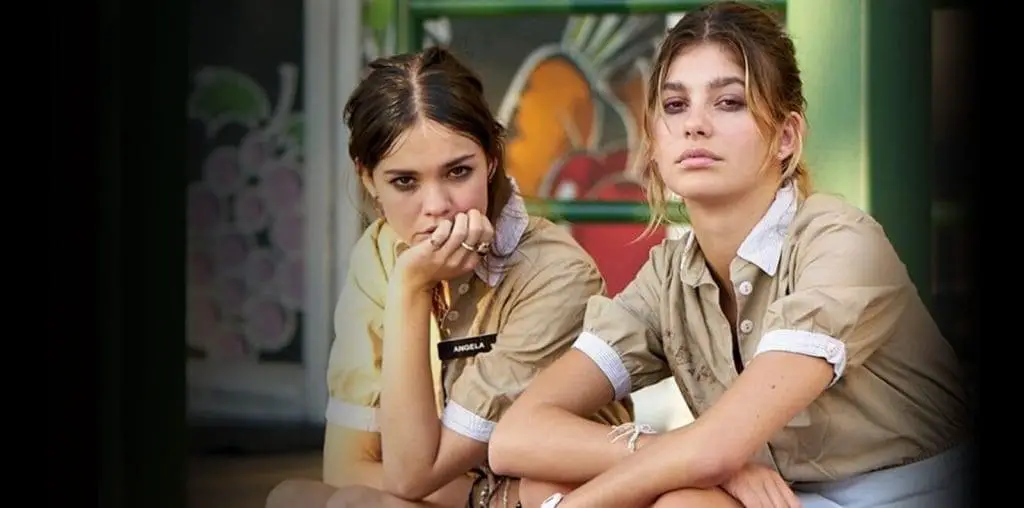
As seen in its opening shot, the thorny, flowery bush that lends “Lantana” its title will come to hold a deadly secret, but the mystery behind that is less on director Ray Lawrence’s mind than (as the film’s tagline suggests) the mystery of love, as explored through a tangled web of four married couples in Australia. Leon (Anthony LaPaglia) and Sonja (Kerry Armstrong) Zat are longtime marrieds with two kids who have reached a dead end in their marriage. She confides her worries and insecurities to psychiatrist Valerie Sommers (Barbara Hershey) while he carries on an affair with Jane (Rachæl Blake), who happens to attend the same dance class to which Sonja goes. These two women have personal dramas of their own: Valerie’s relationship with husband John (Geoffrey Rush) has been strained since the murder of their 11-year-old daughter, and the ravings of a particularly brash patient (Peter Phelps) makes her suspect the worst; Jane is recently separated from her husband Pete (Glenn Robbins). Finally, next door to Jane live Nik (Vince Colosimo) and Paula (Daniela Farinacci), a younger married couple with three young children.
Despite the soapy canvas of interlocking characters, the interconnections aren’t played too heavily until the film’s second half, when the mystery element takes over. For its first hour, “Lantana” is an intriguing meditation on the nature of marriage and relationships in general. Each couple provides a distinctive angle: the couple whose flame was suddenly extinguished by a trauma (Valerie and John); the couple whose spark has fizzled out for reasons unknown to them (Leon and Sonja); the couple that has quit (Jane and Pete); and the couple that sticks together through either youthful naïveté or preternatural wisdom (Nik and Paula). Armstrong (who is rather embarrassingly credited as “Kelly Armstrong” in Lions Gate’s theatrical trailer) and Hershey are particularly poignant as two women both frustrated and confused by their problematic unions and their own feelings about them.
When Lawrence and writer Andrew Bovell (adapting his play “Speaking in Tongues”) finally turn their attention to the issue of the lantana, the film becomes less absorbing–ironic, for this plot development bring together characters unaware of their knotty connections. Considering how unexceptionally the mystery is resolved, it feels a bit of a waste, but at least Lawrence and Bovell use it as a device (albeit too mechanical of one) to get characters to face each other and what’s going on within themselves and each other. Love is indeed the greatest mystery, as “Lantana”‘s tagline goes, and while the film is ultimately still and interesting and fairly involving one, it’s a bit unfortunate that the filmmakers weren’t content to simply explore that quandary instead of manufacturing another.
